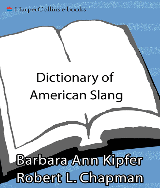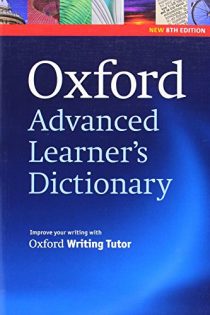

His approach in The Vulgar Tongue is only to some extent linear. Her knowledge of slang dictionaries is superb, but it is, to borrow Bertrand Russell’s terminology, knowledge by description there is no comparison between her The Life of Slang, drawn from her unparalleled knowledge of slang dictionaries, and Green’s The Vulgar Tongue, drawn from his unparalleled knowledge of the slang lexicon and his subjective understanding of the creation and role of slang.
Oxford dictionary of slang pdf series#
Julie Coleman, author of a four-volume series on the history of cant and slang dictionaries, also wrote The Life of Slang, in which she set out on approximately the same task as Green’s in The Vulgar Tongue. Michael Adams’s Slang: The People’s Poetry addresses the social, aesthetic, and linguistics values of slang and other non-standard English, but he does not focus on the slang of any particular time, place, or counterculture. Two other scholars have recently looked at slang from a macro point of view. His decision to ignore the slang of the United States created a substantial gap in his knowledge. He paid scant attention to slang outside the British Commonwealth and was seemingly more comfortable with nineteenth-century pickpockets and prostitutes than he was with modernity. Partridge was early in his career as a lexicographer of slang and was feeling his way into his topic. In 1933, slang’s pater familias Eric Partridge published Slang To-Day and Yesterday. The territory has been mapped or at least described before but not with the precision and thoroughness that Green brings to the task. The territory that Green has chosen in The Vulgar Tongue is the slang of the United Kingdom, the United States, and Australia over the last four centuries. It is not a dictionary but a discourse on the language that he has gathered in his dictionaries.


The Vulgar Tongue, then, addresses the cake. He likens slang dictionaries to the icing on the cake, with slang as the cake. Rather than the word-by-word pursuit of the lexicographer, this is a work of language history, treating slang as the whole of the many small parts that he has catalogued in his dictionaries. Now, with The Vulgar Tongue, Green steps back and looks at the big picture of slang. It is an account of coming of age in counterculture London in the 1960s and then launching into the harmless drudgery of slang lexicography. In Odd Job Man, Green proved himself a laconic, self-aware, and clever memoirist. Tens of thousands of hours reading for citations led to a staggeringly thorough dictionary on historical principles. With publication of the three-volume Green’s Dictionary of Slang in 2011, Jonathon Green produced what I, his competitor and colleague, believe to be the finest piece of slang lexicography in the English language. The Vulgar Tongue is Green’s third book treating slang in four years, each of which illustrates a different dimension of Green. After a career of painstaking slang lexicography, here he wanders and observes as did the flaneur, unencumbered in the words of Cornelia Otis Skinner “by any obligation or sense of urgency.” He looks up from his desk and tells us what it all means. Green’s streets are found in the slang of the English-speaking world. The flaneur was a stroller, an urban spectator yet explorer, a maker of detached but aesthetically attuned observations. Jonathon Green as expressed in The Vulgar Tongue is to slang as the flaneur was to the streets of nineteenth-century Paris.


 0 kommentar(er)
0 kommentar(er)
